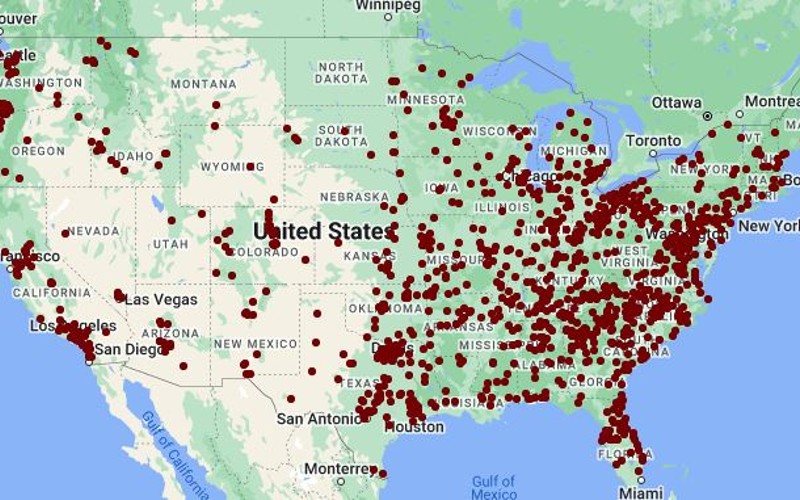An increasing number of Americans are religiously unaffiliated, led by older millennials, younger Gen Xers, and those living in Western states. According to the Public Religion Research Institute, Americans in their late teens and early twenties are the most unchurched (36%) – but the decline in religious affiliation was seen across the board, including 34% percent of those 30-49 years old, 21% of the 50-64 age group, and 18% of Boomers and older.
Dr. Alex McFarland of Truth for a New Generation says there are two factors that are driving the trend.
"As goes the family and as goes the classroom, so goes America," he tells AFN. "Be in this for the long pull: if you want to save the country, be a champion for the family and for the biblical worldview."
The faithless seem to thrive in the West. More-populated counties in Washington, New Mexico, Colorado, Oregon and California see the highest percentage of the religiously unaffiliated.

"While there are believers in Western states, many of the Western states have been characterized by secularism, New Age-ism," notes McFarland.
The Christian apologist says beyond preaching the gospel and fostering a biblical worldview, two other things can help attract people back to church. Addressing life needs and heart needs.
"I encourage churches to provide the life skills that people seek. There are felt needs that young people have – socialization and how to talk to people … and then life answers, the big questions," he explains.
As for the heart needs? "We can provide the things that are common to the human heart – acceptance, significance, security, family, relationship, learning how to meet people."
The research findings were drawn from a random sample of 40,000 adult Americans (age 18 and older) living in all 50 states in 2023.







